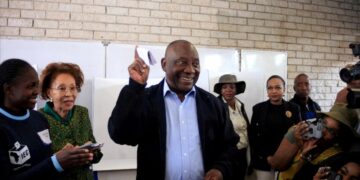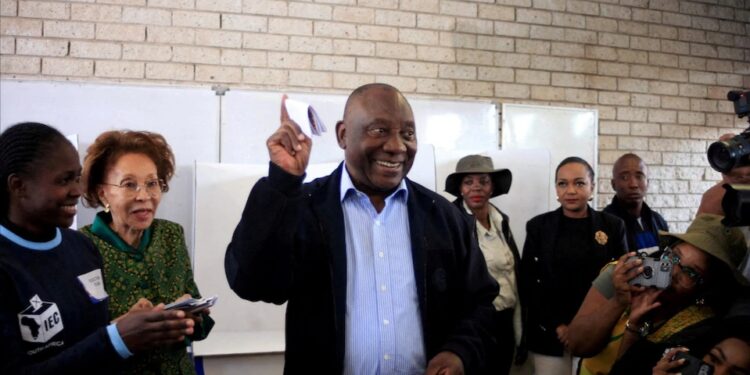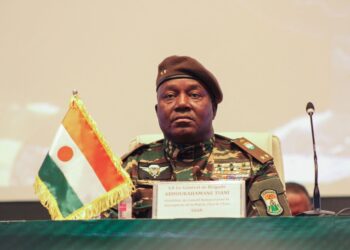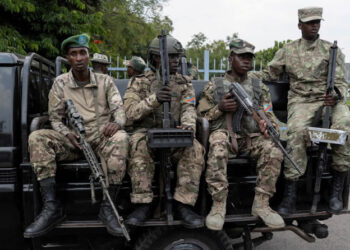By Enyichukwu Enemanna
The final results from South Africa’s general election have been released, handing the governing African National Congress (ANC) 159 seats in the 400-seat parliament, its worst electoral outing in 30 years.
The party which ended apartheid rule of white-majority in 1994 will therefore require a coalition to form a majority in the parliament, which will then elect the next President.
Despite losing its majority, the ANC with its 40% votes still maintains a wide lead over other political parties.
Speaking on Sunday shortly after the final results were declared, President Cyril Ramaphosa said all parties must find common ground and work together for the good of everyone.
The main opposition party, the Democratic Alliance (DA), received almost 22% of the vote.
The breakdown of seats secured in the parliament among the political parties is represented below:
ANC – 159 seats
DA – 87 seats
MK – 58 seats
EFF – 39 seats
IFP – 17 seats
PA – 9 seats
If a coalition goes ahead, the implication is that for the first time since 1994, ANC will share power, in order to keep it.
In two weeks’ time, a new parliament will be formed and they will go ahead to elect the President, who would likely emerge from the party with the highest number of parliamentarians.
ANC’s secretary general, Fikile Mbalula said on Sunday the ANC would not bend to pressure from other parties for Ramaphosa to step down as a condition for the coalition to take place.
Before Wednesday’s vote, the ANC had won every national election by a landslide since 1994, but over the last decade its support has waned.
Voters, angry at joblessness, inequality and rolling blackouts, withdrew their support for the legacy party of Mandela to 40 per cent, down from 57.5 per cent in the 2019 parliamentary vote.
“Did we commit mistakes? Yes, we did. In governance and everywhere else,” Mr Mbalula said on Sunday during the first press briefing the ANC has held since the polls, adding the party had “nothing to celebrate”.




































